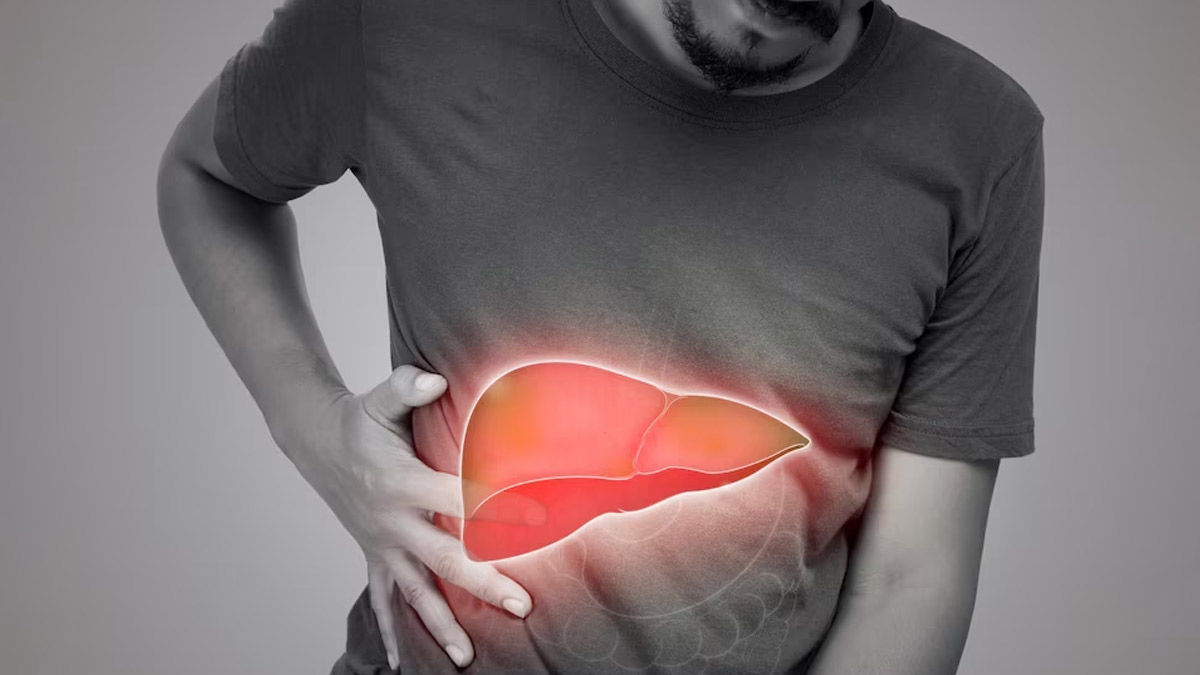
Being diagnosed with liver cirrhosis can be disheartening, especially because it is an extreme stage of liver damage and indicates that healthy cells have been replaced by scar tissues. Many factors can cause cirrhosis of the liver including, heavy alcohol consumption, hepatitis B and C virus infections, and fatty liver caused by obesity and diabetes. Unfortunately, cirrhosis cannot be undone or reversed, says Dr Kavya Dendukuri, Senior Hepatologist, Kamineni Hospitals, L.B Nagar, referring to it as "permanent liver damage."
However, she shares with the OnlyMyHealth team a few ways to reduce further damage and burden on the liver.
Cirrhosis Means Irreversible Damage Of The Liver

"Generally, the liver has a capacity to regenerate even though the liver cells do die in the early stages. However, over a period of time, when the liver becomes extremely fatty, it becomes fibrosed, ultimately leading to cirrhosis, which is irreversible damage to the liver," says Dr Dendukuri.
According to the doctor, there are two categories in cirrhosis: compensated cirrhosis or decompensated cirrhosis.
Also Read: Liver Cirrhosis: Causes, Symptoms, Diagnosis And Treatment
Compensated cirrhosis is the asymptomatic stage, where people with liver disease do not experience any symptoms, such as ascites, variceal haemorrhage, hepatic encephalopathy, or jaundice. On the other hand, decompensated cirrhosis refers to "an acute deterioration in liver function in a patient with cirrhosis and is characterised by jaundice, ascites, hepatic encephalopathy, hepatorenal syndrome or variceal haemorrhage," as defined in a study published in the Journal Clinical Medicine.
According to the Journal of Hepatology, liver disease, attributed to cirrhosis, viral hepatitis, and liver cancer, causes more than 20 lakh deaths each year and accounts for 4% of all deaths worldwide.
Common Symptoms Of Liver Cirrhosis

Common symptoms of liver cirrhosis include:
- Fatigue and weakness
- Loss of appetite and weight loss
- Nausea and vomiting
- Abdominal pain and swelling
- Jaundice (yellowing of the skin and eyes)
- Itchy skin
- Easy bruising and bleeding
- Spider veins on the skin
Dr Dendukuri notes a serious complication associated with end stage liver disease, also called portal hypertension. It occurs when there is an increased pressure within the portal venous system, which helps drain blood from the gastrointestinal tract, spleen, pancreas, and gallbladder to the liver
Therefore, if the vessels in the liver are blocked due to liver damage, it can slow down the flow of the blood, leading to heightened pressure through the portal venous system. Hence causing development of large, swollen veins within the oesophagus, stomach, rectum, or umbilical area, as per the WebMD.
- Black, tarry, and bloody stool
- Vomiting of blood
- Ascites or accumulation of fluid in the abdomen
- Confusion and forgetfulness caused by poor liver function
- Reduced levels of platelets
How To Reduce The Burden On Liver With Cirrhosis

Dr Dendukuri says liver cirrhosis is permanent and anyone who is diagnosed with compensated cirrhosis has a possible life expectancy up to 7-9 years, as per study. However, for those who have developed complications and have decompensated cirrhosis, the life expectancy can be as low as 2 years to 7 years, he shares, the only mode of treatment being liver transplantation.
Also Read: Your Legs Can Signal A Fatty Liver Disease: Note THIS Warning Sign
Therefore, while no lifestyle changes can reverse liver cirrhosis, the doctor shares that there are ways to reduce the burden on the organ. These include:
- Avoid oily, deep fried, extremely sugary, and salty foods
- Increase protein intake through vegetarian foods like sprouts, channa, rajma, paneer, soya, lentils, and non-vegetarian foods like chicken, fish, and egg white
- Limit the consumption of red meat such as mutton, beef, and pork
- Indulge in physical activity, such as walking
- Do NOT drink alcohol and quit smoking
Bottomline
To prevent liver cirrhosis, it is important to follow a healthy diet, cut off alcohol consumption, and indulge in regular physical activity. In addition, if you have pre-existing health conditions that can strain the liver, you must get necessary treatments as guided by the doctors. However, if you have been diagnosed with cirrhosis, know that it cannot be cured or reversed. What you can do is lower the burden and strain on your liver by following a healthy diet and cutting off alcohol completely.







